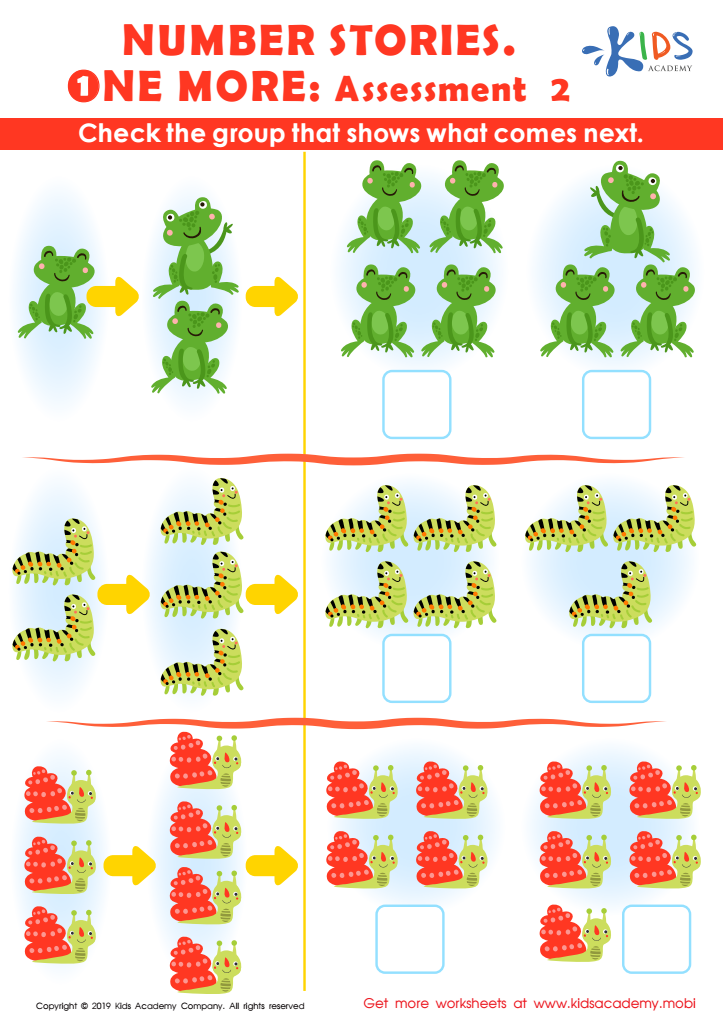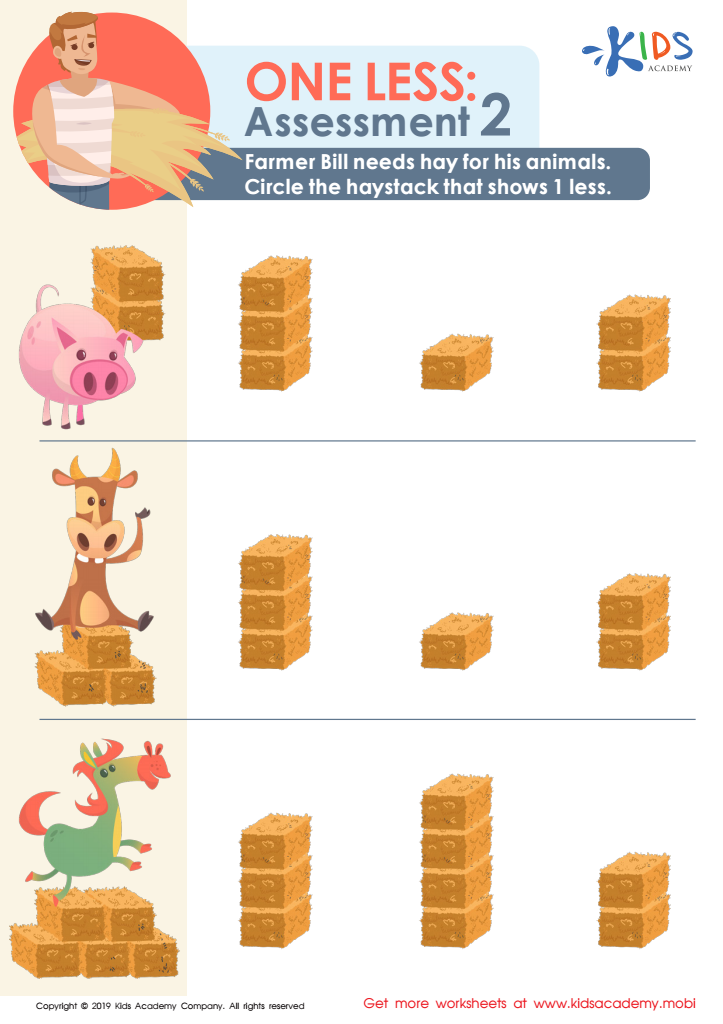Counting worksheets activities for 3-Year-Olds
2 filtered results
-
From - To


Number Stories One More – Assessment 2 Worksheet


One Less: Assessment 2 Worksheet
Counting worksheets activities are an indispensable tool in the journey of learning mathematics for young students. These engaging and interactive activities serve as a foundational block, spearheading the development of numerical skills that are essential for more complex mathematical concepts. Let's delve into why counting worksheets activities are so beneficial.
Firstly, counting worksheets activities are crafted to bolster number recognition and sequencing. By repetitively working through these activities, children become adept at identifying numbers and understanding their order. This familiarity is crucial, as it sets the stage for operations like addition, subtraction, and beyond. Essentially, without a firm grasp on counting, progressing in math would be significantly more challenging.
Moreover, these activities enhance cognitive development. As children count, they're not just reciting numbers; they're engaging multiple areas of the brain. This engagement fosters critical thinking and problem-solving skills. They learn to associate quantities with numbers, a skill that transcends mathematics and applies to everyday life, such as understanding the concept of time, measuring ingredients for a recipe, or managing money.
Counting worksheets activities are also versatile. They can be tailored to meet the individual needs and learning paces of each child. Whether it's starting with simple number recognition for beginners or introducing more complex counting patterns for advanced learners, these activities can be adjusted accordingly. This adaptability ensures that all children, regardless of their proficiency level, can benefit from and be challenged by these worksheets.
Furthermore, these activities make learning fun and engaging. Incorporating elements like colorful illustrations, themes, and interactive components, counting worksheets can transform a routine learning task into an enjoyable experience. This not only keeps children motivated but also encourages a positive attitude towards learning and mathematics.
In conclusion, counting worksheets activities are an invaluable educational resource. They lay the groundwork for mathematical literacy, promote cognitive development, offer customizable learning experiences, and make learning an enjoyable endeavor. These activities are not just about learning to count; they're about setting the foundation for a lifetime of mathematical learning and application.

 Assign to the classroom
Assign to the classroom












